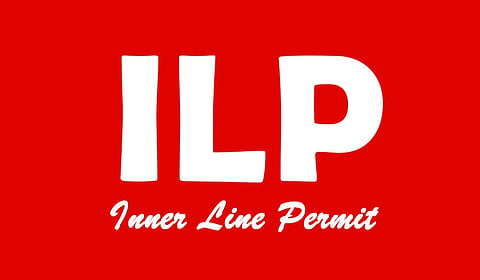
- Home
- Live Blog
- Breaking News
- Top Headlines
- Cities
- NE News
- Sentinel Media
- Sports
- Education
- Jobs

CORRESPONDENT
SHILLONG: Meghalaya Education Minister Rakkam A. Sangma on Tuesday weighed in on the contentious issue of the Inner Line Permit (ILP), stating that while the mechanism is crucial for regulating illegal immigration, it should not be misunderstood as a barrier to tourism, which plays a vital role in the state’s economy.
“Regarding ILP, there are two things that need to be understood. Whether or not ILP is introduced, the arrival of tourists will not stop, because they are only coming to visit. They come to promote tourism and support the state,” Sangma said.
Clarifying the purpose of the ILP, he added, “ILP is not about tourism; it is about regulating the influx of people. The main objective of ILP is to prevent illegal immigration and settlement. We have many undocumented immigrants across the state, and the government has no record of them.”
The minister acknowledged that while ILP would help in controlling illegal settlements, the state already has several protective legal frameworks. “For me, ILP is meant only to regulate illegal entry into the state. However, we already have mechanisms in place, such as the Sixth Schedule, the Land Transfer Act, and the Meghalaya Residents Safety and Security Act (MRSSA),” he said.
Sangma also highlighted the importance of community vigilance and the role of traditional local governance. “We are empowered. We have the Dorbar Shnong and the Nokma. Every locality is empowered and well-equipped to detect illegal settlers. But the system will only work effectively if everyone takes responsibility.”
He continued, “If every Dorbar Shnong and every Nokma scrutinizes and detects illegal immigrants, it will help because the land belongs to the community. In Meghalaya, one cannot just buy land and settle. The process involves several procedures.”
Explaining the regulatory process, Sangma said, “We have the District Council, and people need a No Objection Certificate (NOC) from the Nokma and from the District Council. So, it is not easy to come and settle in Meghalaya directly.”
However, he raised another concern. “Many illegal immigrants are entering the state with seemingly proper documents, especially in the labour sector.”
Supporting the introduction of ILP in principle, Sangma said, “Yes, it would be good if ILP can be introduced to regulate entry more effectively. However, whether it is ILP or any other system, it should not hinder tourism. Tourism is like the bread and butter of the state—we do not have major industries, so tourism is our economic strength.”
He concluded with a call for collective effort: “Tourism should grow properly and benefit the local people who depend on it for their livelihood. Let us work together to help our tourism sector grow better.”
Also Watch: